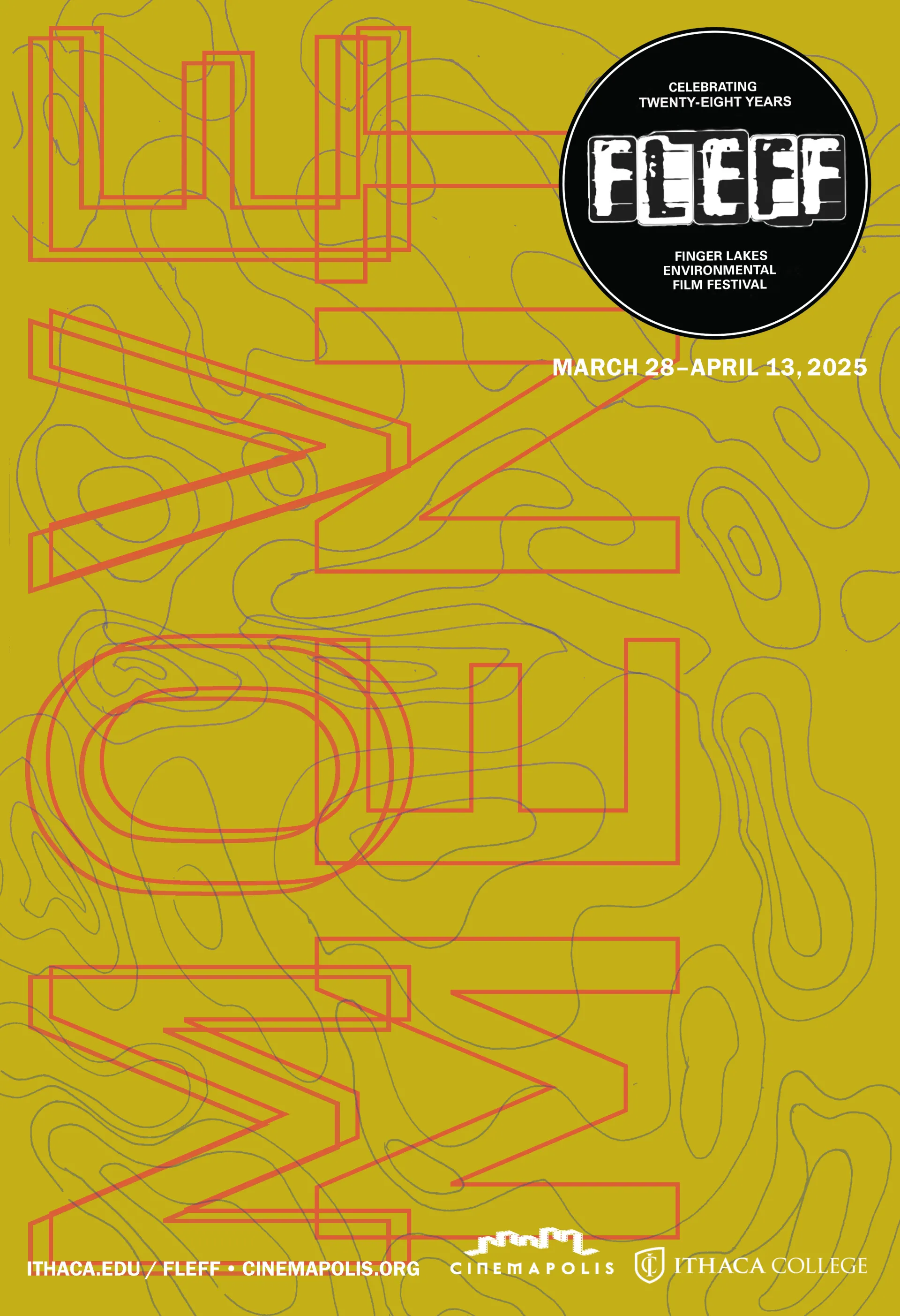28th annual Finger Lakes Environmental Film Festival
The 2025 edition of FLEFF runs from March 28 – April 13. This year's special theme is Movement. Events and screenings will be held on Ithaca College's campus and downtown at Cinemapolis.

Follow FLEFF on social media
FLEFF: A DIFFERENT ENVIRONMENT